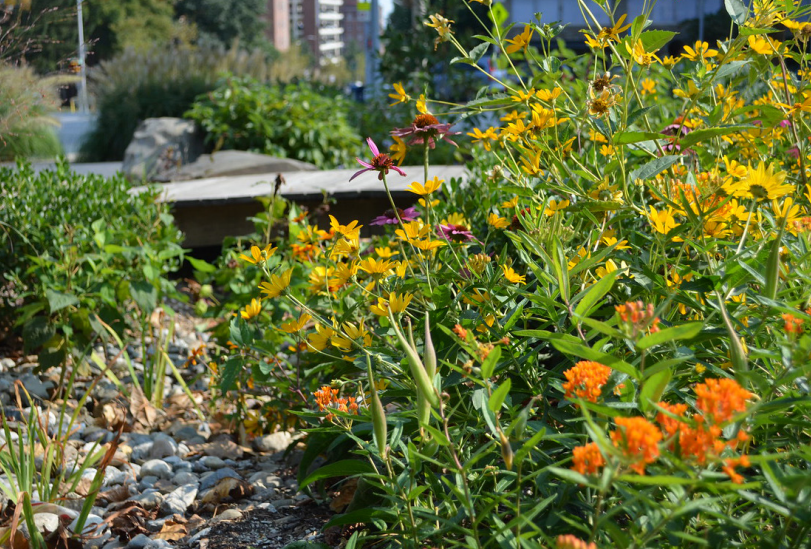



Stormwater runoff is a leading cause of pollution to Baltimore’s waterways. In this highly urbanized region, impervious surfaces cover almost half of Baltimore’s landscape, preventing rain from soaking into the ground. Stormwater delivers trash, oil and other pollutants to our waterbodies and contributes to sewage overflows.
One approach to managing stormwater that is gaining popularity is “Green Stormwater Infrastructure” (GSI). GSI is the practice of treating and replacing hardscape with plant-based and water harvesting systems that reduce stormwater volume and pollution. GSI provides many co-benefits like improving air quality and reducing urban heat, making cities healthier and more desirable places to live.
In this report, Blue Water Baltimore identifies several barriers to implementing GSI projects in the city. Three case studies highlight the following challenges and potential solutions.
Challenge 1: Unclear Regulatory and Permitting Provisions for Voluntary GSI
There is no provision for voluntary GSI in the city code, which has resulted in an ad hoc permitting process that lacks clarity and predictability. Liability and maintenance requirements place an undue burden of finance and labor on communities striving to improve the environment.
Recommendation: Update the city code to define and promote voluntary GSI and develop a streamlined, time-bound, and transparent permitting process. Establish reasonable liability and maintenance requirements commensurate with GSI project benefits.
Challenge 2: Poor Communication among City Agencies and with Residents
GSI consideration is largely limited to the Department of Public Works (DPW) for the purposes of meeting regulatory requirements. This narrow focus inhibits collaboration, communication, and value for GSI between City departments and with external stakeholders.
Recommendation: Develop a collaborative Task Force composed of city agencies and external stakeholders to improve communication, encourage innovation, and engage broader participation in GSI planning.
Challenge 3: Insufficient funding for GSI
Baltimore City has a Stormwater Utility Fee, yet less than 1% is dedicated to community greening projects.
Recommendation: Substantially increase the portion of Stormwater Fee revenue that supports GSI.
Baltimore City has an opportunity to demonstrate leadership by embracing GSI to not only manage stormwater pollution, but also to improve quality of life for residents.